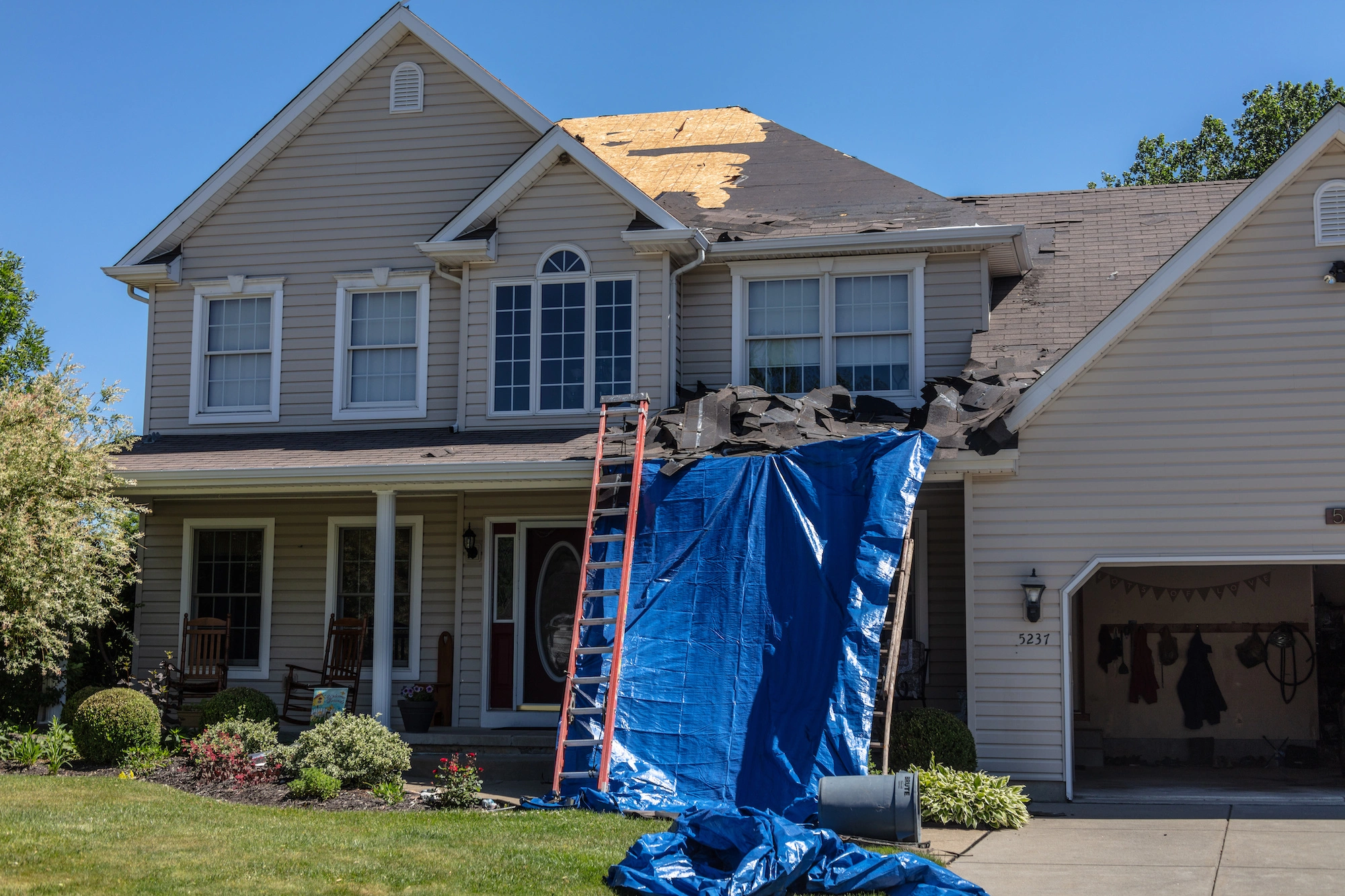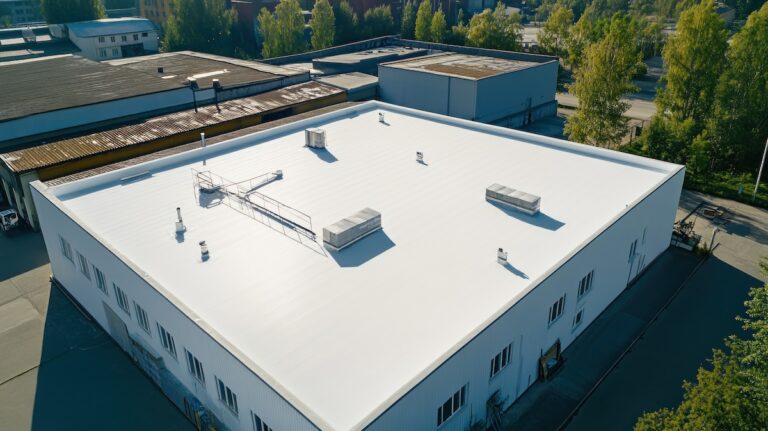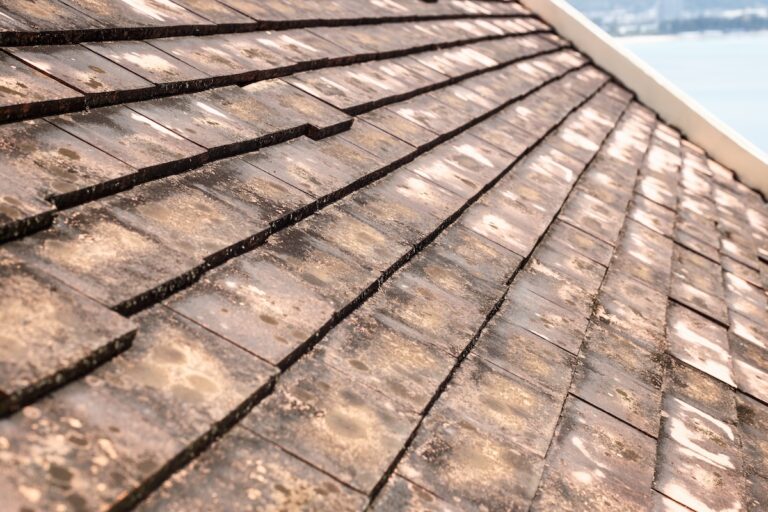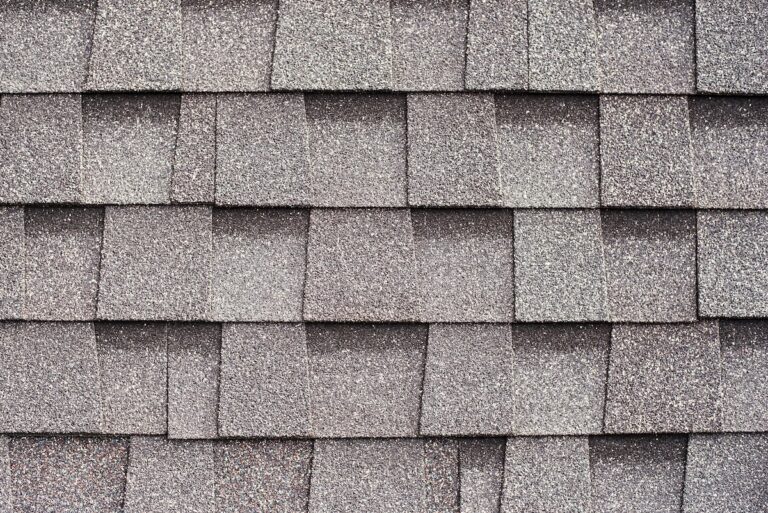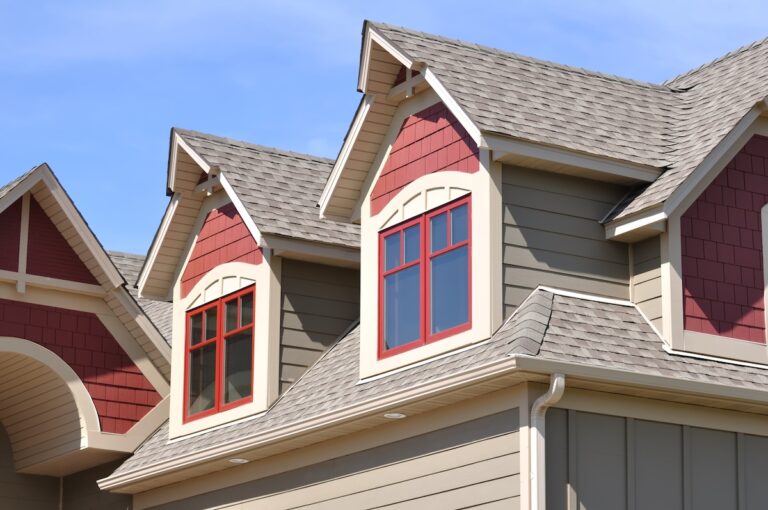The roof over our heads serves as the ultimate shield against nature, safeguarding us and our belongings. However, over time, wear and tear can take its toll, leading to the need for repairs.
Roof repair costs can vary significantly depending on various factors, making it essential for homeowners to understand what to expect. In this how-to guide, we’ll delve into:
- The signs indicating the need for roof repair
- The associated costs
- Factors influencing them
- Insurance coverage
- Filing claims
- The crucial role of roofing contractors in the process
How much does roof repair cost? Keep reading for all the nitty gritty details!

Signs You Need Roof Repair
Not sure if your roof is damaged or not? Here are the signs to watch our for!
- Leaks: The most apparent sign of roof damage is water leaks, often noticeable through stains on ceilings or walls. Even minor leaks can indicate significant underlying issues.
- Missing or Damaged Shingles: Inspect your roof for missing, cracked, or curling shingles, as they can compromise its integrity, making it susceptible to leaks and further damage.
- Sagging Roof Deck: A sagging roof deck suggests structural issues, possibly due to water damage or aging materials, necessitating immediate attention.
- Granule Loss: Check your gutters for granules from asphalt shingles, as excessive loss can signal roof deterioration and the need for repair or replacement.
- Mold or Mildew Growth: Presence of mold or mildew in the attic or on exterior walls can indicate poor ventilation or water intrusion from the roof.
- Visible Damage: Look for visible signs of damage such as cracks, holes, or rust on metal roofs, which can compromise their effectiveness.
How Much Does Roof Repair Cost?
The cost of roof repair can vary widely based on several factors, including the extent of damage, materials used, labor costs, and geographic location. On average, homeowners can expect to pay anywhere from $300 to $1,500 for minor repairs, while extensive repairs or replacements can range from $1,000 to $10,000 or more.
Factors Influencing Roof Repair Costs
- Extent of Damage: The severity of the damage directly impacts repair costs. Minor issues like replacing a few shingles will be less expensive than repairing significant structural damage or addressing widespread leaks.
- Roofing Material: Different roofing materials have varying costs associated with repairs. Asphalt shingles are generally more affordable to repair compared to metal, tile, or slate roofs.
- Labor Costs: Labor expenses can vary based on the complexity of the repair, accessibility of the roof, and local labor rates.
- Roof Size and Pitch: Larger roofs or those with steep pitches may require more time and labor, contributing to higher repair costs.
- Underlying Issues: If the damage is a result of underlying issues such as poor installation, inadequate ventilation, or previous repairs, addressing these factors may add to the overall cost.
Will Insurance Cover Roof Repair Costs?
Whether insurance covers roof repair costs depends on the cause of the damage and your specific policy. Generally, homeowners insurance may cover repairs for damage caused by unforeseen events such as storms, hail, fire, or vandalism. However, routine wear and tear or neglect are typically not covered.
How to File an Insurance Claim: 5 Steps
If you want to file an insurance claim for your roof, follow this handy guide to get the support you need!
1) Document Damage:
Take photographs or videos of the damage to provide evidence when filing your claim. Document any temporary repairs you make to prevent further damage.
2) Contact Your Insurance Company:
Notify your insurance provider as soon as possible to initiate the claims process. Provide detailed information about the damage and follow their instructions for filing a claim.
3) Schedule an Inspection:
Your insurance company may send an adjuster to assess the damage and determine coverage. Be present during the inspection to point out specific areas of concern.
4) Obtain Estimates:
Obtain repair estimates from reputable roofing contractors to submit to your insurance company. Ensure the estimates include a detailed breakdown of materials and labor costs.
5) Review Your Policy:
Familiarize yourself with your insurance policy to understand coverage limits, deductibles, and any exclusions that may apply to roof repairs.
6) Follow Up:
Stay in communication with your insurance company throughout the claims process, providing any additional information or documentation they may require.
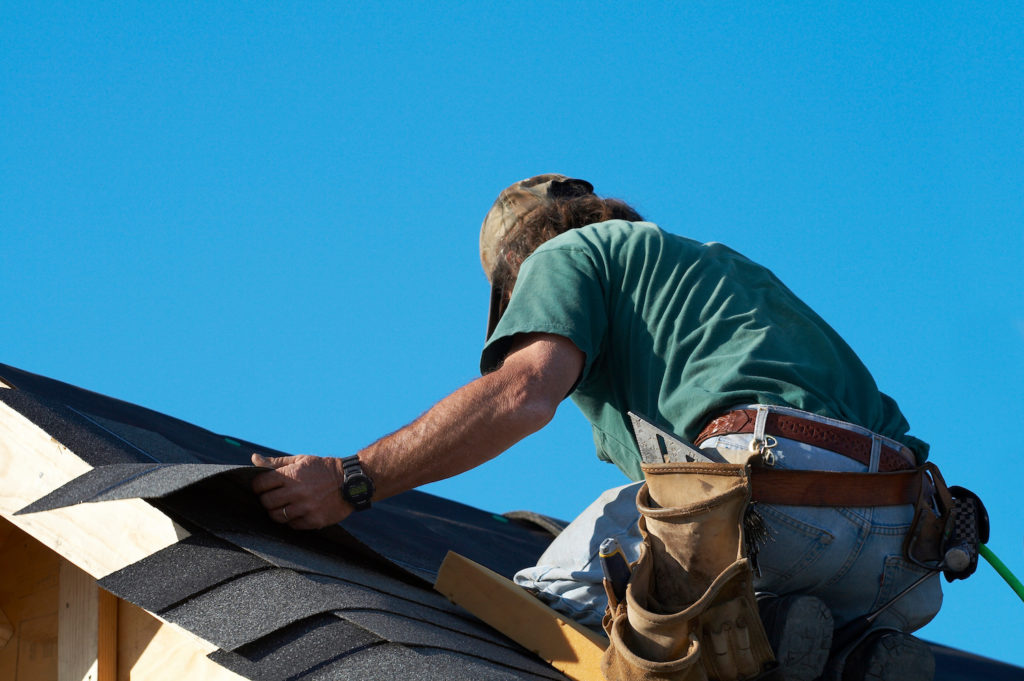
How Your Roofing Contractor Can Help
Many roofing contractors offer insurance claims assistance. Here’s how they can lend a helping hand and help you get the financial support that you deserve!
- Assessment and Diagnosis: Experienced roofing contractors can thoroughly inspect your roof to identify issues and recommend appropriate repairs. Their expertise ensures that all potential problems are addressed, preventing future issues.
- Accurate Cost Estimates: Roofing contractors can provide detailed cost estimates for repairs, helping you understand the financial implications and plan accordingly.
- Quality Repairs: Entrusting repairs to skilled professionals ensures the work is done correctly and up to industry standards, minimizing the risk of further damage or recurring issues.
- Navigating Insurance Claims: Roofing contractors familiar with the insurance claims process can assist you in documenting damage, obtaining estimates, and communicating with your insurance company to facilitate a smooth claims process.
- Preventative Maintenance: Beyond repairs, contractors can offer guidance on preventative maintenance measures to prolong the lifespan of your roof and minimize future repair costs.
- Warranty Coverage: Many roofing contractors offer warranties on their workmanship, providing added peace of mind knowing that repairs are backed by a guarantee.
Learn More About the Cost to Repair Your Roof
Roof repair costs can be a significant investment for homeowners, but understanding the factors influencing these costs and navigating insurance coverage can help mitigate financial burdens. Regular maintenance and prompt attention to signs of damage are crucial for preserving the integrity of your roof and avoiding costly repairs down the road. By partnering with reputable roofing contractors and leveraging insurance coverage when applicable, homeowners can ensure their roofs remain sturdy and secure for years to come.
With this guide, homeowners can approach roof repair with confidence, armed with the knowledge needed to make informed decisions and protect their most valuable asset—their home. Contact G Cannon today to get started!
